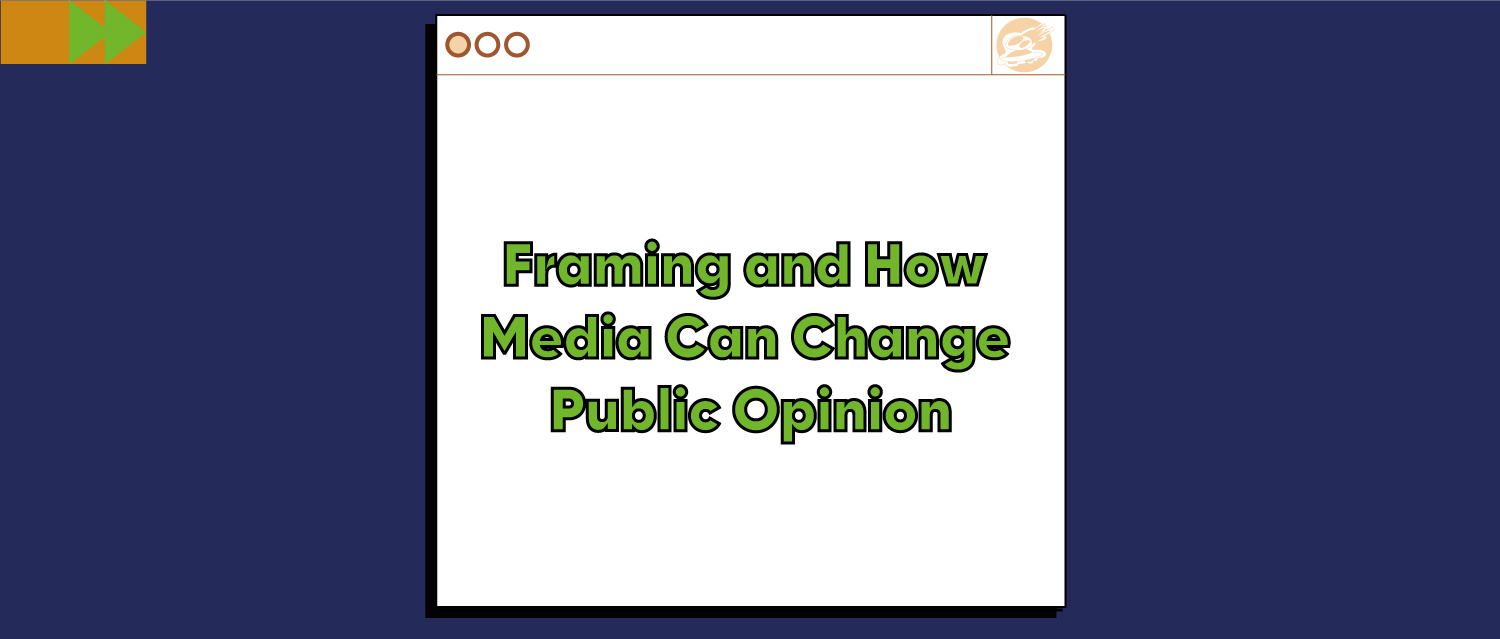Author: Tika Gobadze
When conveying news, media outlets, in most cases, apply already tried and tested formulas for choosing headlines or storytelling styles. In this practice, easily recognizable photos, phrases, and concepts are used in order to reach the reader as quickly and efficiently as possible and convey the significance immediately. However, during this process, such approaches can lead to a certain interpretation of a subject – choosing a title, photo, and summary creates the need to prioritize certain areas or shorten the full story, which often loses the details and reduces the objectivity of a piece. The clearest example of this is the coverage of the Boston Marathon bombing we can see in different media. Considering that the mentioned issue was of special importance, each media wanted to convey information to its viewers as quickly as possible and obtain exclusivity. As a result, a large amount of misinformation spread virally in the public and, due to the high interest, had a great influence on the formation of opinion. Most damaging of these were articles by The New York Post that unverifiedly named various wrong suspects, making them targets.
Taking into account the above-mentioned, the discussion of the importance of the media in terms of influencing people only focuses on the results of its action, although it is necessary to consider the origin of the politics of specific media. In some cases, such as, for example, the media operating in Russia “Россия 1”, we find a form completely dependent on the government and its interpretations when reporting news or writing analytical articles. Contrary to this, there are also opposition media, such as, for example, “Mtavari Arkhi” in Georgia, which in many cases discusses specific events with opposite approaches. It is this kind of interest-driven coverage that results in the actualization of framing.
Framing provides an alternative to discussing media bias – it does not assess the validity of facts but examines the intentions hidden behind the text delivered by the media to the user. Although there are various definitions of Framing, it is mostly defined as the following: Framing means selecting some features of the reality perceived by the media and highlighting them in the text in a way that serves to reveal a specific problem, revealing the cause-and-effect relationship, moral assessment and/or recommending the form of its assessment, therefore, in the process of prioritization, the media in some cases leave out those details that do not fit the relevant agenda. Framing is a manifestation of the process of constructing narratives, it shows how the narrator can give different interpretations, that is, create a frame, for a certain event.
Studying the prevalent frames related to a certain issue in the mainstream media is also beneficial in finding out the opinion of the majority of the population on the said issue in the country. One of the clearest examples of this is the coverage of terrorism and the War on Terror policy, or political violence in general: After 9/11, the frame established in the American media, by which terrorism was formed as the most acute, priority threat to the country, was not questioned. There was a consensus about it both in society and in the political field therefore, there were no questions about the existence of framing. Such coverage is called one-sided coverage, and we often find it, for example, in countries where terrorist groups, such as the Taliban in Afghanistan, control the mass media. Two-sided coverage is found in cases where specific political events affect two different groups heavily and sharply oppositely, the example of which are the Israeli and Palestinian media outlets in Jerusalem. The issues are further complicated by the international media, which in turn tries to avoid one-sided discussions and presents arguments from both sides, which often creates a new perspective.
BIBLIOGRAPHY:
- Routledge. 2003. Framing Terrorism: The News Media, The Government and the Public. Edited by Pippa Norris, Montague Kern and Marion Just. New York: Routledge.;
- Lichfield, Gideon. 2013. Four Ways the media failed in covering the Boston Bombings and one reason why. Apr 20. Accessed May 13, 2024. https://qz.com/76668/boston-marathon-and-the-media.;
- BBC. 2023. Russia Media Guide. March 6. Accessed May 25, 2024. https://www.bbc.com/news/world-europe-17840134.;
- Vladisavljević, Nebojša. 2015. “Media Framing of Political Conflict: A Review of Literature.” Media Conflict and Democratisation (MeCoDEM). ;
- Entman, Robert M. 1993. “”Framing: Toward Clarification of a Fractured Paradigm”.” Journal of Communication 51-58.

